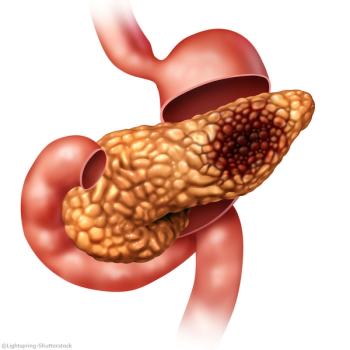
Eileen M. O’Reilly, MD, on the Challenges of Treating Patients with Pancreatic Cancer
The medical oncologist from Memorial Sloan Kettering Cancer Center discussed challenges in treating patients with pancreatic center, and also the challenge of obtaining effective drugs in the clinical setting.
Eileen M. O’Reilly, MD, medical oncologist at Memorial Sloan Kettering Cancer Center, spoke about the ongoing challenges that physicians face when treating patients with pancreatic cancer, as well as the challenge of getting effective drugs into the clinical setting for this population at the 2020 Gastrointestinal Cancers Symposium, which was held January 23-25, in San Francisco, California.
Transcription:
So, pancreas cancer, the bar is high, right? We have a long history of multiple randomized phase II and phase III trials that haven’t met the threshold that led to approval. We have a finite number of drugs available and we want to make sure we use all these drugs to their maximal potential for each individual patient. We want to make sure we look for any genetic context be it in the germline or be it in the tumor, there’s a number of patients subset with KRAS wild-type enriched in younger people where we’ll find alternative oncogenic drivers that are targetable, and again, knowing those genetic mutations and providing drugs either, ideally, in the context of a trial or outside of a trial is important.
But to circle back to your question, clinical trials are essential in pancreas cancer and we try to encourage patients to contribute in every way they can. So by filling out lifestyle questionnaires, you know, we learn from that, by understanding their diabetes, by understanding their pain control, by donating blood tissue, by being supportive of on treatment biopsies to learn why drugs work, but maybe sometimes even more importantly, to get insight why they don’t work and how we can move on to the next step more quickly. And, so that’s a really important message. I think it’s also important to emphasis that this is an exciting time in pancreas cancer research, there’s a lot of interest in this cancer, which is growing and increasing and that’s good, having more minds focused on this is going to help optimize outcomes. And there’s a lot of drugs in early development, I mean, we still need a major breakthrough there’s no question about that, but I think thankfully this field is changing.
Newsletter
Stay up to date on recent advances in the multidisciplinary approach to cancer.






































